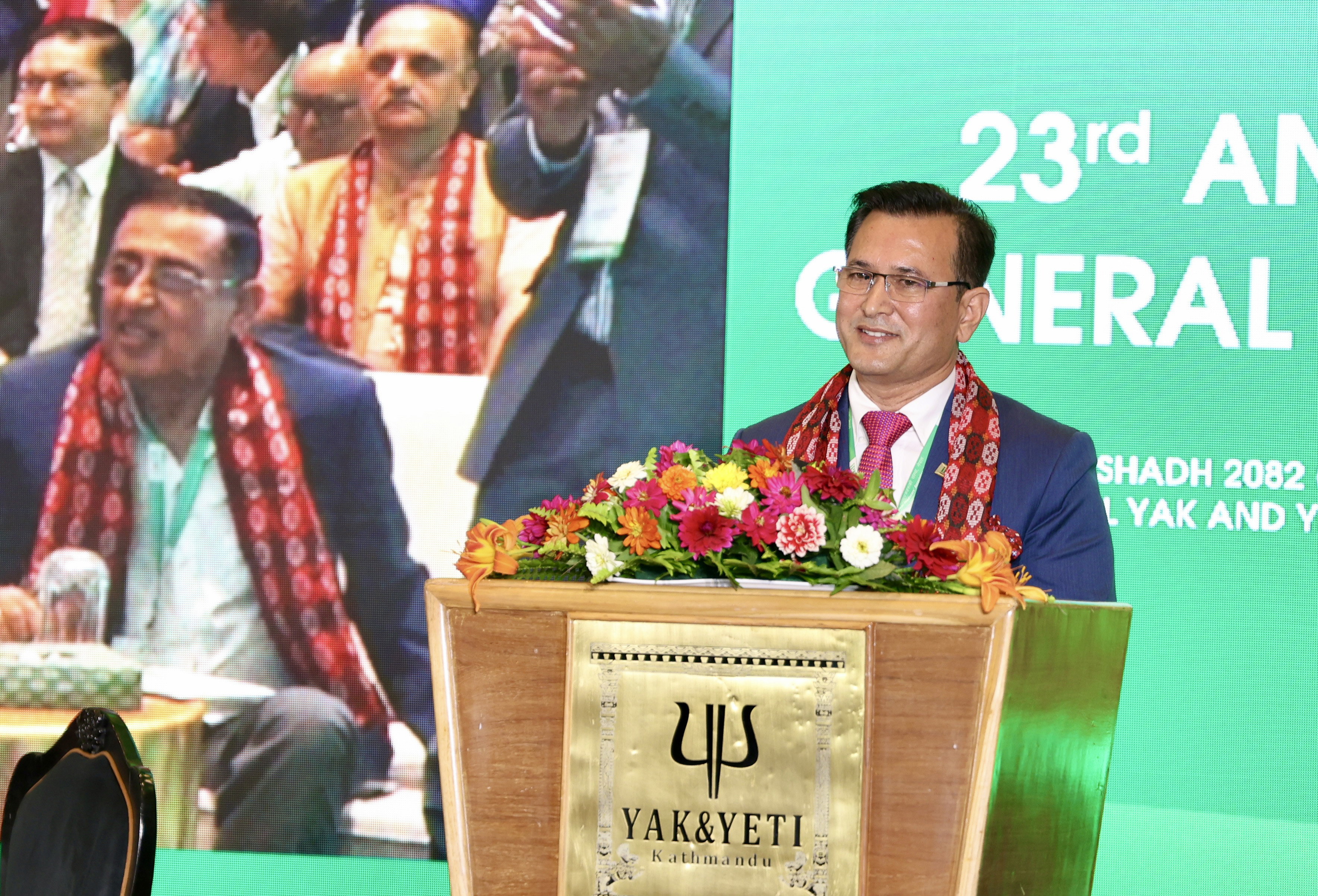KATHMANDU, April 13: The Independent Power Producers' Association, Nepal (IPPAN), has urged Prime Minister KP Sharma Oli to facilitate the issuance of shares by hydropower companies.
Citing a directive from the Public Accounts Committee to the Securities Board of Nepal (SEBON), IPPAN noted that SEBON has withheld approval for Initial Public Offerings (IPOs) and rights issues of 53 hydropower companies for the past 20 months.
This delay has stalled IPO applications from 42 energy companies worth around Rs 20 billion. SEBON has also withheld approval for rights issues totaling Rs 4.5 billion from 11 companies.
IPPAN said the lack of approval for public share issuance has stalled the construction of several hydropower projects. It also said that authorities have failed to enforce the legal provision requiring hydropower companies to issue IPOs to the general public.
IPPAN added that the suspension of IPO and rights share issuance since mid-July 2023 has triggered a serious crisis in project development.
What does the PAC directive say?
IPPAN and NIA reach agreement on hydropower insurance premiums

Nepal’s Securities Board (SEBON) has stopped approving IPOs, citing a directive issued during the 19th meeting of the Public Accounts Committee (PAC) on December 28, 2023. The directive requires companies to maintain a real net worth of over 90 before issuing IPOs. Before this, SEBON had already suspended approvals due to the lack of a board chairperson.
As the hydropower sector lacks a clear definition of “real net worth,” SEBON has refused to move forward, stating it will only allow share issuance once the government provides a formal definition. As a result, private hydropower projects under construction are struggling with financial management. Meanwhile, local communities affected by the projects have begun obstructing construction, demanding the shares they were promised.
Similarly, Clause No. 6 of the Public Accounts Committee’s decision restricts basic shareholders who invest in hydropower projects during their establishment from selling one-third of their shares even after repaying the project’s construction loan and completing the three-year lock-in period. This restriction has already started to undermine the environment for equity investment.
Currently, over 10,000 founding investors are investing in a single project through crowd financing. Investments from both the general public and promoters have played a significant role in mobilizing capital in the highly capital-intensive energy sector.
If the provision that prevents the sale of shares even after the lock-in period remains in place, promoters of one project will be less likely to invest in other projects, reducing the chances of developing large-scale projects in the future. This would also seriously hinder the implementation of the Government of Nepal's "Energy Development Roadmap and Action Plan, 2081 BS," which aims to produce 28,500 megawatts of electricity over the next 10 years.
To support the government's goal, IPPAN has urged the Prime Minister to reconsider the decision and create an environment for IPO issuance based on the existing legal framework, thus facilitating investment in hydropower projects through crowd financing of promoter shares.
What is the global trend regarding lock-in periods?
In countries with high hydropower production, regulators rarely set the lock-in period for founder shares to more than two years. Most countries, considering a two-year lock-in period too long, have reduced it to six months and raised capital through crowd financing.
In contrast, in Nepal, the Public Accounts Committee's decision and the Securities Board's suspension of IPO approvals have hindered energy project progress. As a result, IPPAN has urged the Prime Minister to create an environment that facilitates the resumption of stalled project construction.
All relevant bodies have been consulted, but the problem remains unresolved
Despite IPPAN sending multiple letters to respected bodies such as the Public Accounts Committee, the Finance Minister and Secretary, the Energy Minister and Secretary, and the Securities Board, urging them to create an environment for the issuance of suspended shares, the issue remains unresolved. As a result, IPPAN has urged the Prime Minister to take action and resume the issuance of these suspended shares.
To facilitate this, IPPAN has requested the Prime Minister to coordinate with the Public Accounts Committee, facilitate the process, and provide the necessary directives to the Securities Board, ensuring the swift creation of an environment that will enable the resumption of hydropower project construction.
IPPAN serves as the umbrella organization for more than 600 active private sector energy-producing companies in Nepal. These companies contribute 80 percent to the country’s electricity production. Currently, the country’s total electricity production capacity stands at 3,500 MW, with 190 projects in operation, contributing 2,800 MW, solely from the private sector.
A total of 141 projects, with a combined capacity of 4,063 MW, are under construction, while another 141 projects, with a combined capacity of 4,363 MW, have completed power purchase agreements (PPAs) with the Nepal Electricity Authority (NEA) and are awaiting financial management.
Similarly, projects that have completed surveys and applied to the NEA for PPAs collectively have a capacity of over 8,000 MW. Additionally, projects that have applied for construction permits from the Department of Electricity Development collectively have a capacity of over 10,700 MW. Private sector investments exceeding Rs 1.5 trillion have already been made in these projects.
To achieve the government’s target of producing 28,500 MW of electricity, which requires an investment of more than Rs 6 trillion, IPPAN has urged Prime Minister Oli to take special action to create a favorable environment for investment.










_20230226123652.jpg)


























